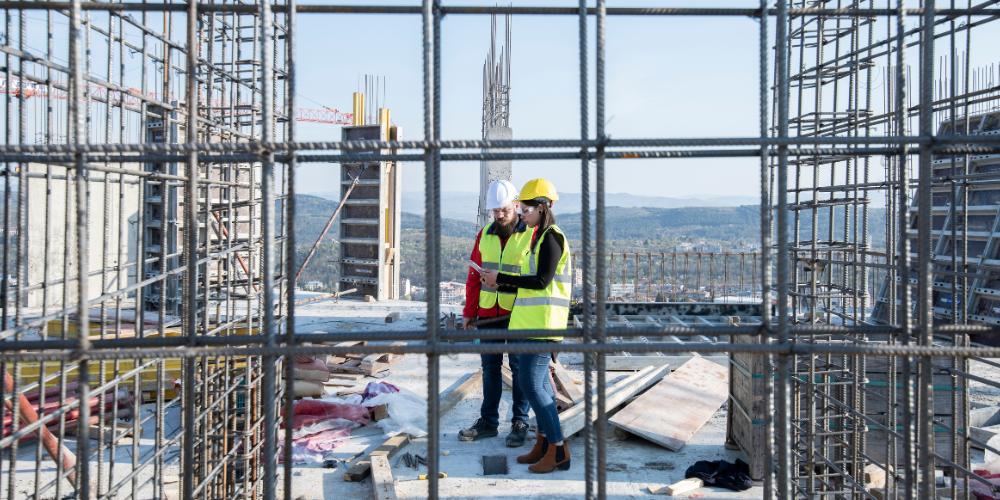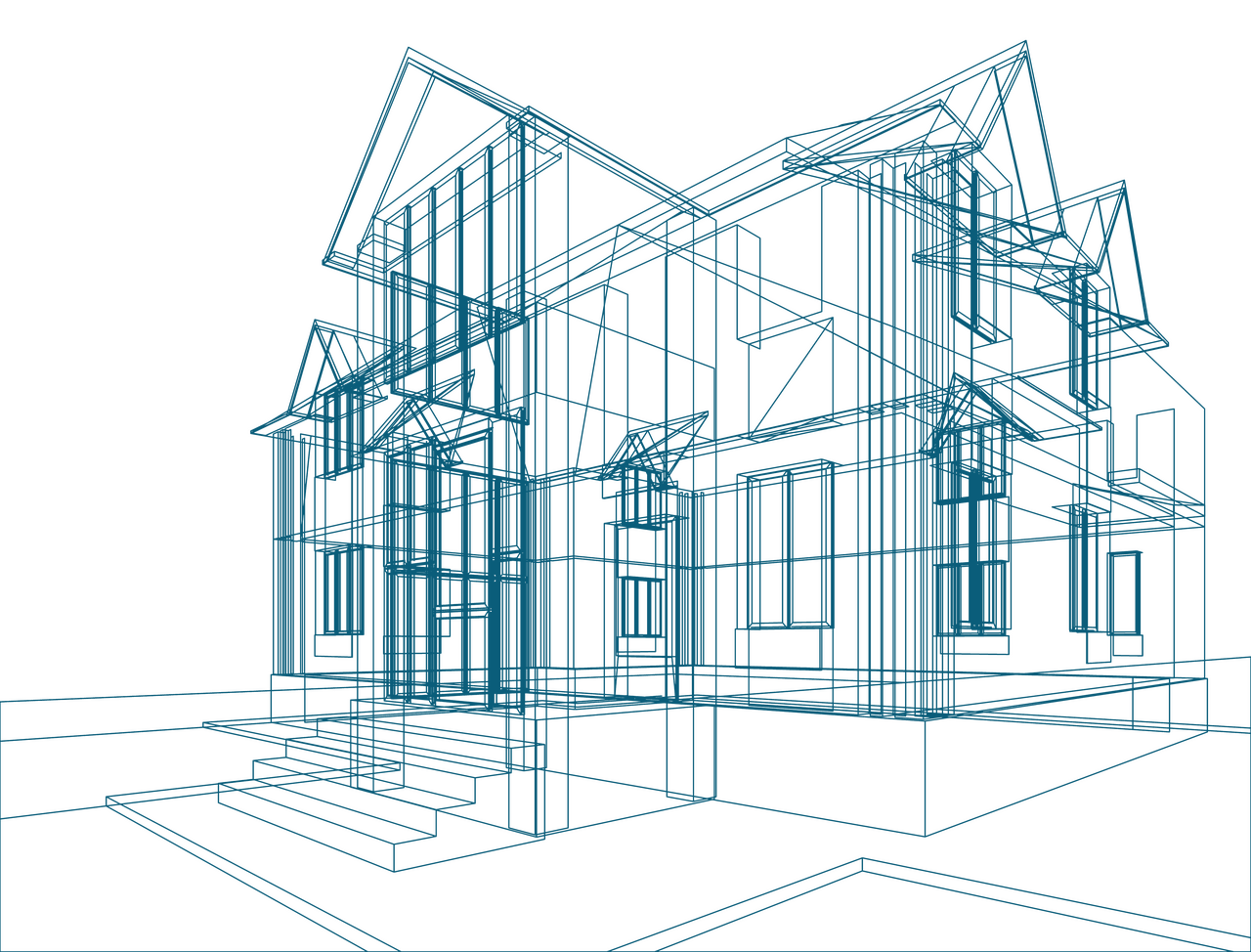


Market report
BIM usage growth among architects
Stay up-to-date with the latest trends and insights in the European architectural industry with the European Architectural Barometer market reports. Access valuable data and analysis to inform your business decisions.
News I published 26 July 2021 I Dirk Hoogenboom
Growth in architects’ BIM usage slower than expected
Growth in architects’ BIM usage slower than expected
In 2019, usage of Building Information Modelling was booming among European architects. Architects’ BIM usage had been growing faster in the 2017-2019 period than ever before. The same goes for the share of projects in which BIM was being used, and ever more stakeholders in the construction value chain were picking up BIM as well.
On top of that, 89% of all European architects were familiar with BIM in 2019, and an increasing amount of them who were not using BIM yet indicated to be planning to start using BIM in the next two years or so. All this made the future of BIM look blindingly bright, and based on these indicators we even forecasted BIM usage among architects to grow from 38% in 2019 to a whopping 53% in 2021.
After two years of unimaginable events that touched all our lives, we take another look at BIM usage in eight European countries in USP Marketing Consultancy’s Q2 2021 European Architectural Barometer, to see what remains of the bright BIM picture we forecasted two years ago.
BIM did not grow as much as we expected
Clearly, the surge in BIM usage that we expected did not happen. Instead of growing to 53%, the share of European architects using BIM only grew from 38% in 2019 to a mere 44% in 2021. We are the first to admit that the forecast of BIM usage we created in 2019 was off by a fair bit, and also the first to ask the question of why? What happened to European architects’ gusto to add BIM to their repertoire, which they so clearly indicated in 2019?
The pandemic does not explain everything
At this point, it is easy to drop an inevitable c-word and blame the corona pandemic, and for good reason. To adopt BIM, architectural firms have to invest money and time. The past two years have not been easy on any of us and the pandemic has caused a lot of economical unrest, resulting in a poor climate to dedicate large investments to innovations like BIM.
Our results indeed show that architects are struggling with such investments at the moment, as a quarter of them indicate the reason for not yet working with BIM to be that the investments to do so are too big. Although it is reasonable to assume that this is a direct impact of the pandemic creating a volatile economic situation that makes architects more reluctant to invest in BIM, it is by no means the only explanation.
BIM growth reduced on more than just the architectural front
Another reason to not have yet started with BIM that was mentioned by even more of the European architects (27%) is that they do not see the benefits for their organisation. Also, lack of demand from private or even public clients is given as the reason for not adopting BIM way more often than in 2019. These results show that architects are not just reacting to a volatile situation created by the pandemic, but to a wider context in which BIM growth has declined.
This line of thought is supported by other figures. The above graph shows that the percentage of architects’ projects in which BIM was used has not really grown over the past two years. Aside from that, our results show that the share of turnover derived from BIM projects has not grown significantly either. All this shows that aside from being less inclined to invest in BIM in a volatile economic situation, the lack of increasing demand and reward for such investments have possibly stopped architect from adopting BIM even more.
What about the future?
Given recent events, it remains hard to predict how BIM usage of architects will develop in the coming years. The question remains whether demand and reward for architects adopting and using BIM has not grown because of an anomaly like the pandemic or because of other reasons. If demand picks up again after the pandemic, BIM adoption among architects may accelerate again as well, but it will differ vastly between countries.
In countries where BIM is already used by a lot of architectural firms, like the Netherlands, not much significant growth may happen due to saturation. At the same time, in other countries where BIM is less prominent yet, the coming years may show growth depending on the development of the economic situation and other contextual factors. The point is to keep your finger on the pulse of the regions you operate in, of which the BIM heartbeats differ vastly from country to country.
For more detailed and country-specific information we refer you to the Q2 2021 report of USP Marketing Consultancy’s European Architectural Barometer.

Read more


12 December 2024 I Dirk Hoogenboom
Buying Behavior of Handymen


12 December 2024 I Henri Busker
Handymen Radar – Private Labels vs. Branded Products


12 December 2024 I Dirk Hoogenboom
Sustainability and Painting – What Matters Most?


12 December 2024 I Zeynep Kutsal
Are European Painters Getting Younger?

Fresh Insights Await
Our relevant reports
Delve into the newest findings across various market segments, crafted for a cutting-edge overview. Explore our insightful reports, brimming with up-to-date data, trend analyses, and in-depth examinations, all tailored to provide you with a comprehensive understanding of the current market dynamics.
Construction
Home Improvement
Installation
Special reports
Construction
Smart Materials and Buildings Q4 2024
2024 85 pages
Explore the evolving future in construction sector among European architects in Q4 2024. Delve into the factors driving material preferences and the impact on construction aesthetics and sustainability.
2,000 Euro
Construction
Digitalisation and BIM H2 2024
2025 64 pages
Uncover the preferred purchase channels of contractors in H2 2024, and understand how purchasing behaviors evolved. This report provides insights into the factors influencing purchasing decisions among contractors.
6,000 Euro
Construction
Decision making process Q3 2024
2024 87 pages
Unveil the decision-making processes in the construction industry through the lens of European architects. Discover the factors that influence crucial decisions and the interplay among different stakeholders.
2,000 Euro
Construction
Prefab H1 2024
2024 63 pages
Discover the adoption rate and benefits of prefabrication technology among European contractors in H1 2024. Understand the driving forces behind prefab usage and its impact on project efficiency and cost-saving.
6,000 Euro
Construction
Future of construction Q2 2024
2024 82 pages
Explore the evolving future in construction sector among European architects in Q2 2024. Delve into the factors driving material preferences and the impact on construction aesthetics and sustainability.
2,000 Euro
Construction
Sustainability 2024
2024 72 pages
Painter Insight Monitor 2024 will focus on understanding the specific needs, preferences, and challenges faced by painters when it comes to sustainable products.
11,000 Euro
Home Improvement
DIY vs DIFM Q4 2024
2025 76 pages
Explore the prevailing trends between DIY and DIFM in Q4 2024. Understand consumer preferences and the factors influencing their choice between DIY and DIFM.
3,500 Euros
Home Improvement
Branding Q3 2024
2024 74 pages
Discover the power of branding in the home improvement sector. Explore how strong branding influences consumer preferences and purchase decisions.
3,500 Euro
Home Improvement
European Garden Monitor
2023 43 pages
Explore the European Garden Monitor, a comprehensive platform dedicated to garden health monitoring in Europe. Access valuable resources and expert advice today.
12,000 Euro
Home Improvement
Purchase channels Q2 2024
2024 90 pages
The European Home Improvement Monitor offers valuable insights on purchase channels in the European home improvement industry, examining the evolving preferences and behaviors of consumers across traditional retail and emerging online platforms.
3,500 Euro
Home Improvement
Sustainability Q1 2024
2024 81 pages
Delve into sustainability trends in the home improvement sector in Q1 2024. Discover consumer preferences and the shift towards eco-friendly home improvement solutions.
3,500 Euro
Home Improvement
DIY versus DIFM Q4 2021
2024 113 pages
This report is a must-have if you’re in the home improvement industry. It provides a wealth of information on the behaviour of DIY and DIFM consumers, their motivations, and the factors that influence their purchasing decisions.
3,150 Euro
Installation
Training needs Q1 2025
2025 100 pages
This report offers an overview of installers’ habits and preferences concerning their education. Furthermore, the report encompasses the pervasive challenge of workforce shortage and explores the sector’s strategies for resolving this issue.
3,250 Euro
Installation
Media orientation Q4 2024
2025 128 pages
The European Mechanical Installation Monitor report provides a detailed analysis of the plumbing and HVAC industry. This report specifically focuses on Media Orientation in the industry.
2,800 Euro
Installation
Services in the installation sector Q4 2024
2025 102 pages
This report provides a comprehensive view of the installer's requirements for services from manufacturers. Within the report, you will find information on the most needed services in each category: commercial processes, engineering, products & installation, and repair & maintenance. It also examines the services that installers offer to their customers.
3,250 Euro
Installation
Prefab Q3 2024
2024 110 pages
Uncover the adoption of prefabricated products in HVAC installations during Q2 2022. Delve into the benefits and challenges associated with prefabrication in HVAC.
2,800 Euro
Installation
Prefab Q3 2024
2024 119 pages
This report offers a comprehensive view of the installers’ involvement and needs regarding prefabricated electrical installations.
3,250 Euro
Installation
Smart & Connected Products Q2 2024
2024 120 pages
This report provides a comprehensive view of the attitudes of installers toward smart building solutions, specifically among electrical installers and their clients. In the report, you will find insights into the installers' experiences with installing smart products and the willingness of end users to invest in such solutions, as well as their motivations and pain points.
3,250 Euro
Special reports
European Sustainability Report 2024
2025 51 pages
This report provides in-depth insights based on triangulation of key market information and data as well as data from USP Marketing Consultancy’s key monitors that are carried out year in, year out. The focus of this report is on the most important stakeholders within the construction industry, namely architects, contractors, electrical and HVAC installers within The United Kingdom, The Netherlands, Belgium, Germany, Poland, France, Italy, and Spain.
3,950 Euro
Special reports
European Sustainability Report 2024
2024 51 pages
This report provides in-depth insights based on triangulation of key market information and data as well as data from USP Marketing Consultancy’s key monitors that are carried out year in, year out. The focus of this report is on the most important stakeholders within the construction industry, namely architects, contractors, electrical and HVAC installers within The United Kingdom, The Netherlands, Belgium, Germany, Poland, France, Italy, and Spain.
3,950 Euro









